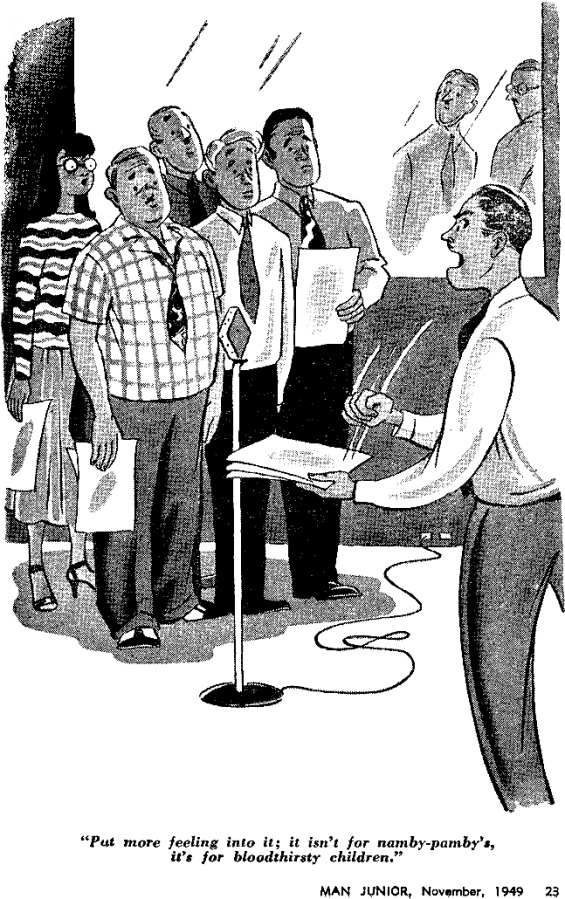
 I recently received email from a friend asking me to send him files that are easily available as a torrent.
I recently received email from a friend asking me to send him files that are easily available as a torrent.
This is pretty funny considering that the guy in question has had hundreds, more likely thousands, of complete copies of his creations downloaded, via torrent, to users all over the planet.
This got me thinking that probably a good many other creators and fans are in the same position – they’ve heard of torrents – would like to use them – but don’t have a friend who uses them. You just need a friend to walk you through it.
Well friends I’m here to tell you that torrents are extremely easy to use, very quick and very safe, just so long as you pay attention to a few details.
It’s actually pretty easy.
Torrents are specialized internet files, very similar to podcast feeds. Like podcast feeds they work to automatically retrieve the content you want. And just like podcast feeds they work only with specialized software.
But why would you want to use one?
Two reasons to use torrents:
1. Torrents do not greatly burden a content creator as he or she need not host the files for very long before they’re off and growing in the wild
2. Torrents are particularly good at the distribution of suppressed materials (take the case of the example given father below)
Software needed:
1. µTorrent is a free and easy to use torrent client (that’s just a piece of software for getting torrents)
Three quick facts to keep in mind after installation:
1. Torrent files end in “.torrent” – when you click on one, and when you’ve got µTorrent installed, you’ll get the download of the file you want (just as long as there are seeders)
2. A seeder is a torrent user who has a complete copy of the download that you want
3. You will see the extensions of the file types you are going to download – this means you can pick and choose the kinds of files you want to end up on your computer
Example of a torrent:
Queen Of The Black Coast is a free full cast audio dramatization, that was suppressed by legal threats. It’s producers no longer host it. But it is available as a torrent on the torrent tracker website ThePirateBay.org (and other torrent tracking websites).
Clicking on the green double down arrow (pictured above) will download the “.torrent file” which will interface with your installed µTorrent software to get you the audio drama. Note the number of seeders listed too. If there are zero seeders then you probably won’t be able to download the complete file or files. And if there are many seeders then the file will come down faster than if there are few. Once you complete your download, and hit “stop” in µTorrent, you will no longer be seeding.
Using torrents will open up a whole new part of the internet to you and make many more parts of the web useful too. A good place to start exploring with your new torrent skills is RadioArchive.cc. RadioArchive.cc is a domain entirely devoted to radio, offering radio drama, audiobooks (broadcast on radio), factual programs and every other kind of audio goodness that public radio services are known for. Happy torrenting!
Posted by Jesse Willis
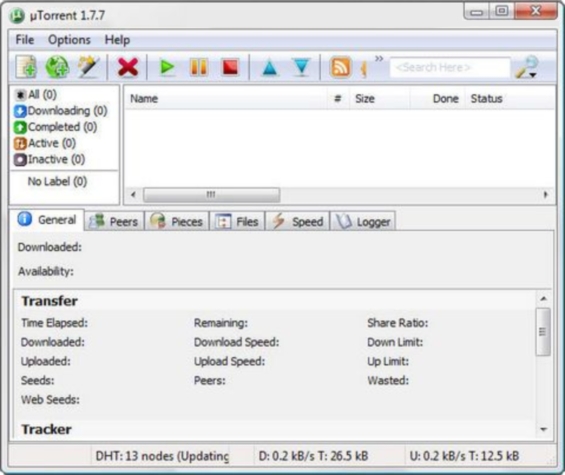
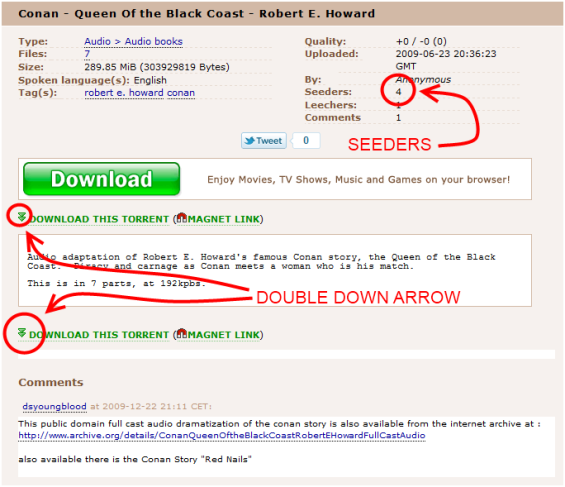
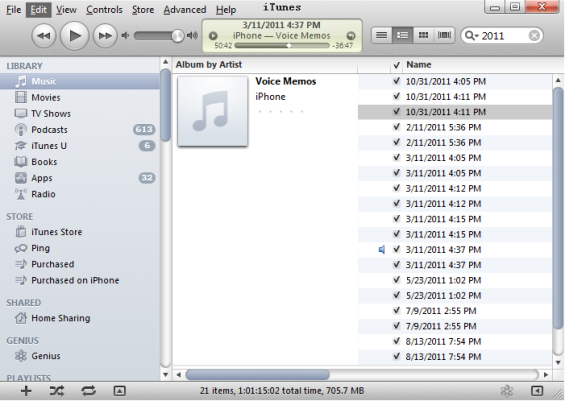
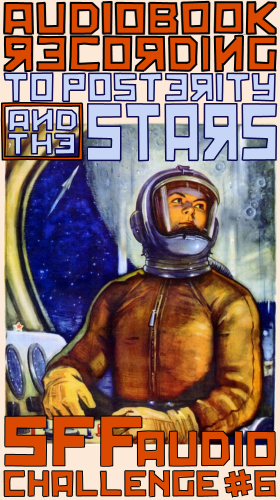 THE CHALLENGE:
THE CHALLENGE:
